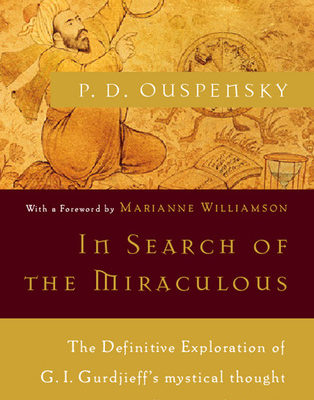In Search of the Miraculous (book review)
In Search of the Miraculous is a book written by a Russian philosopher and esotericist, P.D. Ouspensky, and was published towards the end of his life in the 1940’s. The book consists of recollection of conversations and talks by Gurdjieff, whom Ouspensky met while coming back to his hometown in Russia from one of his trips in Asia, and in general the part of Ouspensky’s life that he spend studying under Gurdjieff’s guidance. In that first conversation of theirs, when they first met, Gurdjieff impressed him a lot with his knowledge and so Ouspensky decided to join his esoteric school and attends many private and public meetings with him. During that time, Ouspensky noted down a lot of things said by Gurdjieff regarding his system of teaching (the Fourth Way etc.) that he learned during his travels in Asia, particularly in some of the monasteries that he was admitted access to, but also regarding other important subjects of esoteric matters and psychology.
I have read this book during my time in Canada, and I remember a lot of interesting things were happening in my life at that time, sometimes even while reading this book. In Search of the Miraculous is truly a wonderful book that can serve as an addition to someone who already has a complete knowledge of the path and who already knows what is needed to walk upon it. The book itself is providing with some important teachings of Gurdjieff, but is incomplete in terms of overall esoteric work, as well as some of its esoteric statements and opinions are questionable and some plain wrong (such as Gurdjief’s view about Kundalini). Nevertheless, it can serve very well as an addition to someone who wants to deepen their inner work, or to give some more food for thought
Here are some Gurdjieff’s quotes from the book:
“Permanent truth and permanent falsehood can exist only for a permanent man. If a man himself continually changes, then for him truth and falsehood will also continually change. And if people are all in different states at every given moment, their conceptions of truth must be as varied as their conceptions of good. A man never notices how he begins to regard as true what yesterday he considered as false and vice versa. He does not notice these transitions just as he does not notice the transitions of his own I’s one into another.“
“In order to know the future it is necessary first to know the present in all its details, as well as to know the past. Today is what it is because yesterday was what it was. And if today is like yesterday, tomorrow will be like today. If you want tomorrow to be different, you must make today different. If today is simply a consequence of yesterday, tomorrow will be the consequence of today in exactly the same way. And if one has studied thoroughly what happened yesterday, the day before yesterday, a week ago, a year, ten years ago, one can say unmistakably what will and what will not happen tomorrow.”
“There is no compulsory, mechanical evolution. Evolution is the result of conscious struggle. Nature does not need this evolution; it does not want it and struggles against it. Evolution can be necessary only to man himself when he realizes his position, realizes the possibility of changing this position, realizes that he has powers that he does not use, riches that he does not see. And, in the sense of gaining possession of these powers and riches, evolution is possible.“


Leave a Reply